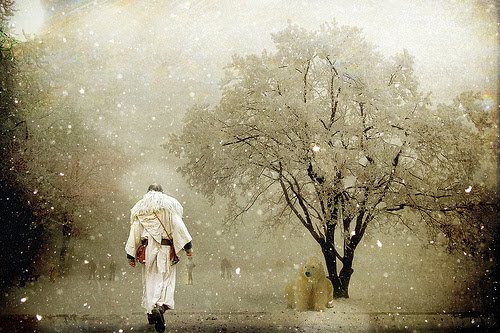Ever stared at a black piece of paper while any semblance of an idea bled away? I think we all have.
Writer's block is insidious, a very real villain that can sneak through your mental shields in all too many ways. It has many causes, but chief among them is the evil of perfectionism.
Perfectionism
It's not necessarily that we lack ideas; sometimes, occasionally, this is the case but often it's not. Often we're simply hypercritical of ourselves: with emphasis on "OUR".
We look at someone else's work, someone who has been published by a publisher we respect and admire, by a publisher we would love to be published by, and we are less critical.
When I was in school our class was given two poems to read, one composed (this is what we were told) by a famous poet and the other composed by an undergrad. Invariably more people said they liked the published poet's work. Then we were told our teacher had switched the attributions. The poem we had been told had been written by a famous poet had actually been written by an undergrad, and vice versa.
The moral: don't be hard on yourself. Your perceptions of your own work are biased. Even if you're a successful writer, each new manuscript feels like a fresh step into the abyss and there are never any guarantees.
Don't edit yourself.
Don't edit yourself. Not on your first draft. Not when you're still at the stage of finding--to use Stephen King's metaphor--the bones of your story.
Yes, absolutely, put your prose--and your story, your plot--under the magnifying glass of editorial critique, your own and others, before you let your literary creations out into the world, before you set them free to run where the many critics of this world can, and will, find them.
Time and time again professional writers have said they doubted themselves for much of their first draft, doubted that anyone else would want to read their scribbles.
But they continued.
Perseverance. That's the key.
Perseverance and a certain mulish obstinacy. Stubbornness.
I said that to one of my non-writing friends the other day, I said that writers had to be stubborn, and his eyes bugged out. "Don't say that!" he said. "It's not a good thing to be stubborn." Well, it is for someone who is churning out, scribbling out, ripping out, their first draft.
Writing, that act of creation, is painful and messy and often produces something ugly, though (one hopes) not irredeemably so. That's what second and third (etc, etc) drafts are for.
No Ideas
What's that you say? What if you, really, honestly, have no idea what to write about?
I find that if I ever feel at a loose end about what to write, if I sit down to write and I hear the empty hiss of static and my mind turns as white and bland and devoid of creative energy/impetus as a white dry erase board, then I like to play with idea generators (see: Seventh Sanctum's Idea Generators).
Always--well, so far at least--what I've written as a result of this sort of writerly exercise bears not the slightest relation to the prompt I began with but it has, inevitably, coaxed my own ideas to come out and play.
In that vein, here is an article +Elizabeth S. Craig shared: Simple Solutions to Ten Common Writing Roadblocks. In it Leslie Lee Sanders lists a multitude of ways to help generate ideas and kickstart your creativity.
Happy reading and writing!
Links:
Photo credit: "Baby Bear" by Laura D'Alessandro under Creative Commons Attribution.



